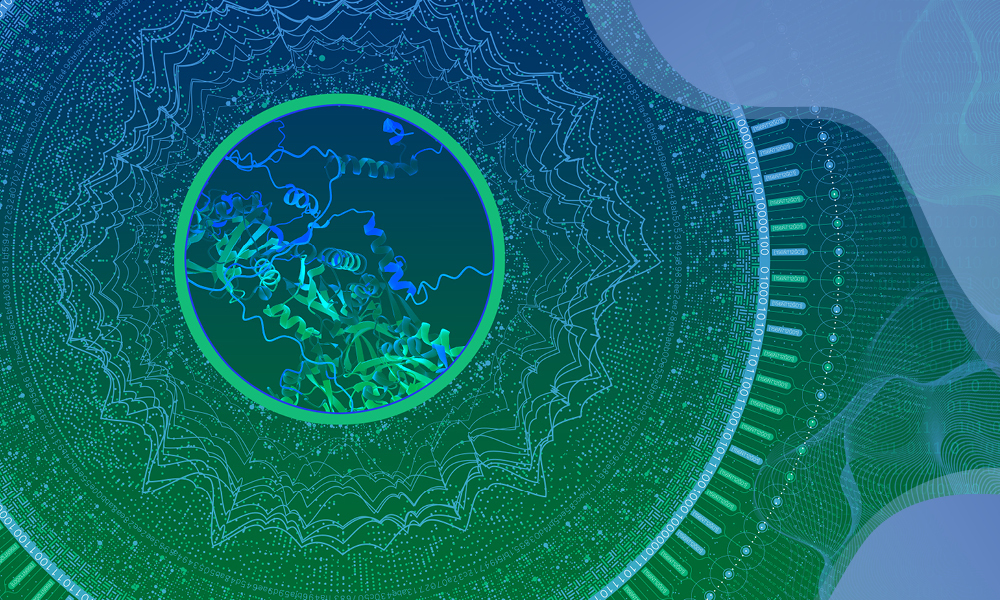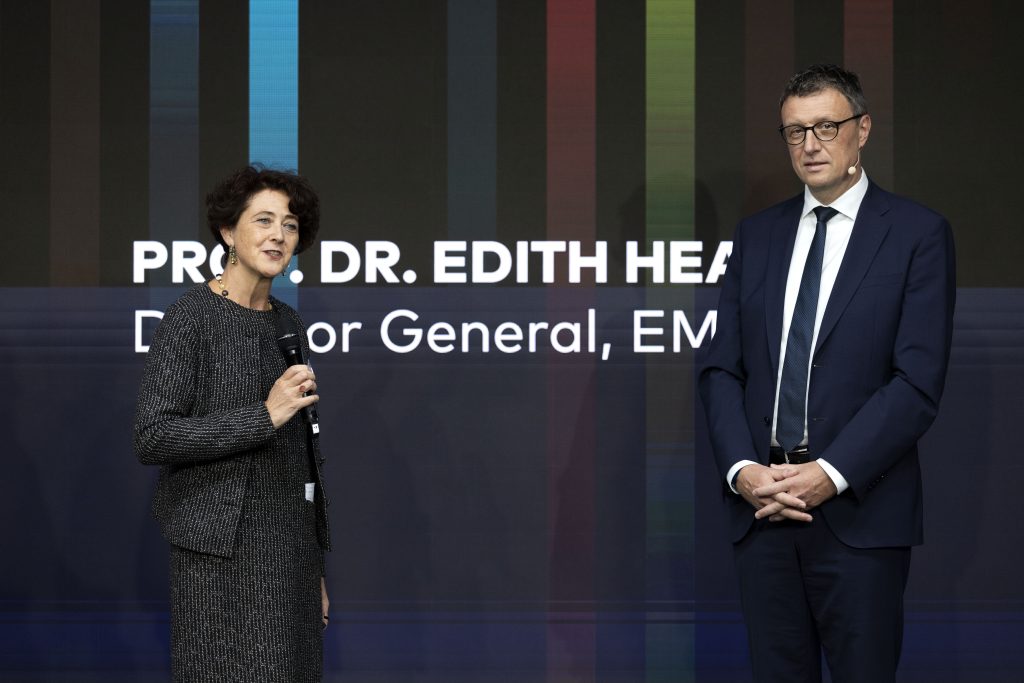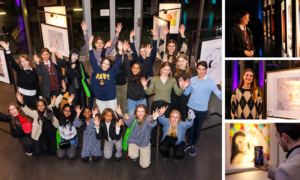
EMBL receives German AI prize
The award recognises EMBL’s varied activities in applying AI to life science research

The German AI prize is awarded by WELT for outstanding services to the research and development as well as the application and commercialisation of artificial intelligence (AI). EMBL has received the award in the ‘user’ category for groundbreaking achievements in the research and development of AI.
This year the prize was given for the fifth time, and recipients were honoured at an award ceremony in Berlin on 28 September 2023. Max Planck Society President and EMBL alumnus Patrick Cramer presented the laudation for the prize awarded to EMBL.
“EMBL has always been a number one training hub – and now it also makes the next generation of biologists AI-ready,” said Cramer in his speech. “AlphaFold was trained on all known 200,000 protein structures in the Protein Data Bank – an archive that is the result of decades of work of thousands of molecular biologists around the globe.” Explaining how EMBL partnered with DeepMind to build a new archive, the AlphaFold Protein Structure Database, he added: “One that makes all protein structure predictions freely available. Open science at its best!”
EMBL scientists apply and develop AI tools in collaborative life science research in many different areas, from structural biology and image analysis to omics and technology development.
“It is wonderful to see our contributions to international AI-based research and scientific development recognised by the German AI Award. We are honoured by the recognition and look forward to continuing to build on this success with future developments in the application of AI to life science research,” said Edith Heard, Director General of EMBL. “EMBL’s diverse research programme is pushing the limits of biological knowledge in research areas including bioinformatics, biophysics, cell, developmental, and structural biology, from microbes to man. In all these areas, AI gains more and more importance as a tool for curiosity-driven research and for applications in human and planetary health.”
AI-based research is standing on the threshold of momentous breakthroughs, especially in the life sciences. Given the momentum gathered in recent years, highlighted by projects like the AlphaFold protein structure prediction tool and the associated AlphaFold Protein Structure Database, the future of AI application holds innovations and discoveries that have the potential to reshape life sciences and healthcare fundamentally.
An important aspect of research becoming more AI-powered is for scientists and engineers to apply principles of transparency and openness to the AI tools they develop. The life sciences community has been sharing research data openly for decades. As such, it’s uniquely placed to leverage new AI technologies to drive our understanding of the living world, from molecules to ecosystems. In order to develop trusted AI that is free of bias, we need open foundational datasets, open AI models, and a society-wide debate that informs regulation.
“New technologies, such as AI, are transforming science and our understanding of the world. We need to ensure that we have a public dialogue about the potential of these tools. As the boundaries of what we can do expand so rapidly, society needs to be part of the conversation about what we should do,” said EMBL Deputy Director General and EMBL-EBI Co-Director Ewan Birney.
To support this conversation, EMBL brings together experts from a range of life science disciplines to discuss the applications, potential, and pitfalls of AI. We are also engaging with policymakers, stakeholders, healthcare specialists and lay audiences, creating opportunities to have these very important discussions. Last, but not least, we are transparent about how we use AI in our research and services.



